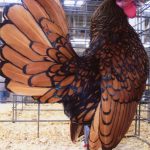
A bantam is a small chicken, about one-fourth to one-fifth as big as a standard-size chicken, generally weighing no more than 2 pounds. The popularity of bantams, affectionately known as banties, began as families moved from farms into suburban areas, and escalated from there. People who enjoy keeping bantams find that they require little backyard […]
Continue Reading
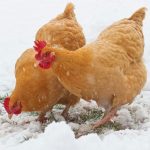
Chickens have a naturally high body temperature, averaging around 106°F, which allows them to remain active despite cold weather. As the temperature drops, a chicken’s metabolism speeds up to keep the bird warm. At the same time, the flow of blood to a chicken’s legs decreases to minimize the escape of body heat from […]
Continue Reading
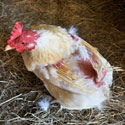
Chickens lose feathers for any number of reasons, some of which are seasonal, while others can occur at any time of year. Here are the most common reasons chickens and other poultry lose feathers and what you can do to help your feathered friends remain feathered. Feather Picking Feather picking is most likely to […]
Continue Reading
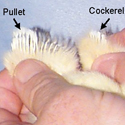
Feather sexing is the ability to determine the gender of a newly hatched chick based on the rate of growth of its wing feathers. The trait is sex linked and works only if the chick’s father is of a breed that grows feathers rapidly and its mother is of a breed that grows feathers slowly. […]
Continue Reading

The most common ways chickens acquire lice are from wild birds and other chickens. Once a chicken is infested, lice spread by crawling from one bird to another. Contact with infested feathers, especially during a molt, also helps spread lice. Lousiness is usually worse in fall and winter. Suspect lice if your chickens are restless, […]
Continue Reading
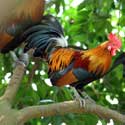
When chickens are allowed to free range, certain breeds fare far better than others, especially in terms of avoiding predators. Ideal characteristics for free ranging chickens include wariness, inconspicuous plumage, acute vision, and foraging ability. Predator Wariness Chicken breeds that are best able to evade predators are the wary, high strung, excitable, so-called […]
Continue Reading
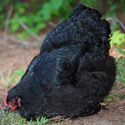
Some chicken keepers deworm their chickens too often. Others don’t deworm often enough. How often your chickens need deworming, or whether they need it at all, depends on numerous factors. These factors include your climate, how your flock is housed and managed, the kind of worms that are present in your chickens’ environment, and the […]
Continue Reading
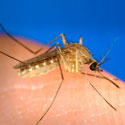
Scientists from Sweden and Ethiopia have discovered that malaria-causing mosquitoes don’t like the smell of chickens. Malarial mosquitoes avoid live chickens, as well as steering clear of compounds extracted from chicken feathers. Researchers are now investigating whether chicken-odor extract might be used as a malarial mosquito repellent, according to a recent BBC report. Since the […]
Continue Reading
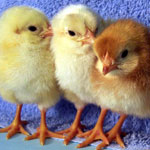
The terms “sex link” and “autosex” both refer to chicks that may be sorted by gender from the moment they hatch. But the two words are not synonymous. Sex link chickens, or sex links, result from mating a hen and a rooster of two different breeds. Autosex chickens are the offspring of a hen and […]
Continue Reading
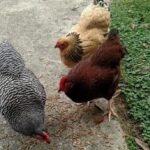
- Bantam Female Deal – 5 – Sold as Baby Chicks – FREE SHIPPING
Seasonal/Shipped Early Feb thru Mid August.
Item #1220
Continue Reading










